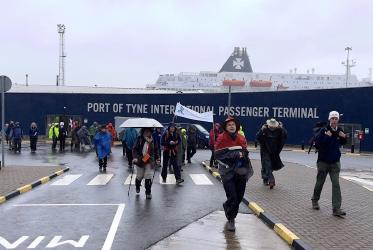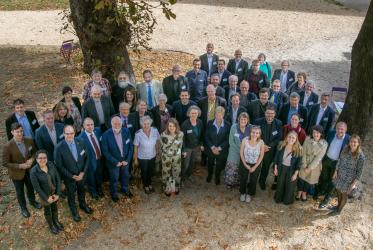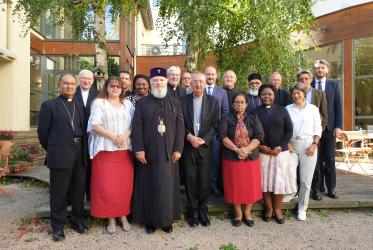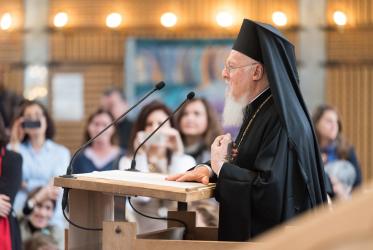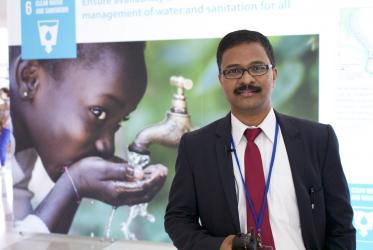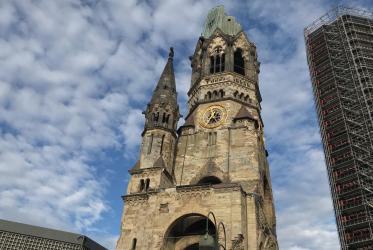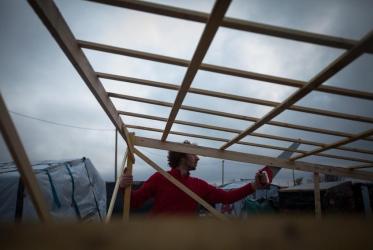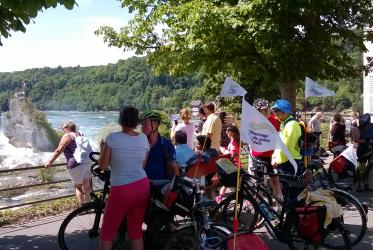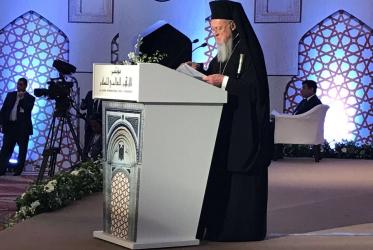Displaying 1 - 20 of 78
Ecumenical conference features theological reflections on ecology
16 February 2021
Churches should use their voice on climate change
26 February 2020
WCC well-represented in Religions for Peace leadership
07 October 2019
WCC expresses sadness, solidarity after Notre Dame fire
16 April 2019
“Love will find a way”
23 August 2018
Churches in France encourage ecological conversion
24 January 2018
A cycling pilgrimage of justice and peace
07 August 2017

